
Barrister @11KBW. Associate @instituteforgov. Writer @thetimes. Views are my own.
6 subscribers
How to get URL link on X (Twitter) App








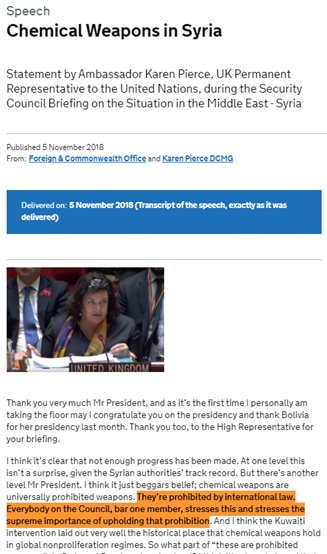

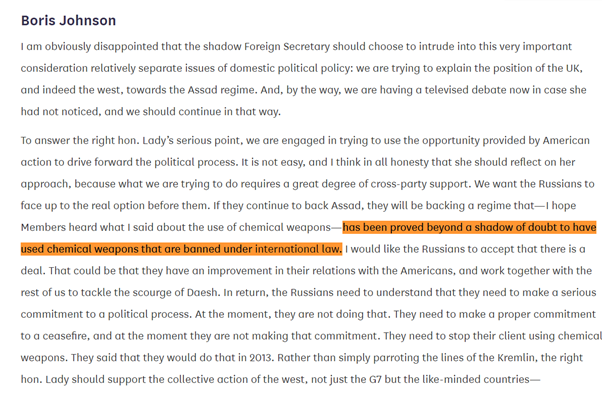




https://twitter.com/BBCNews/status/1277547568466198528In the video, the PM repeats the claim that local lockdowns have already worked in places like Weston-super-Mare. This was news to people in Weston-super-Mare, who did not realise they'd had a local lockdown. In fact, a hospital just temporarily closed.
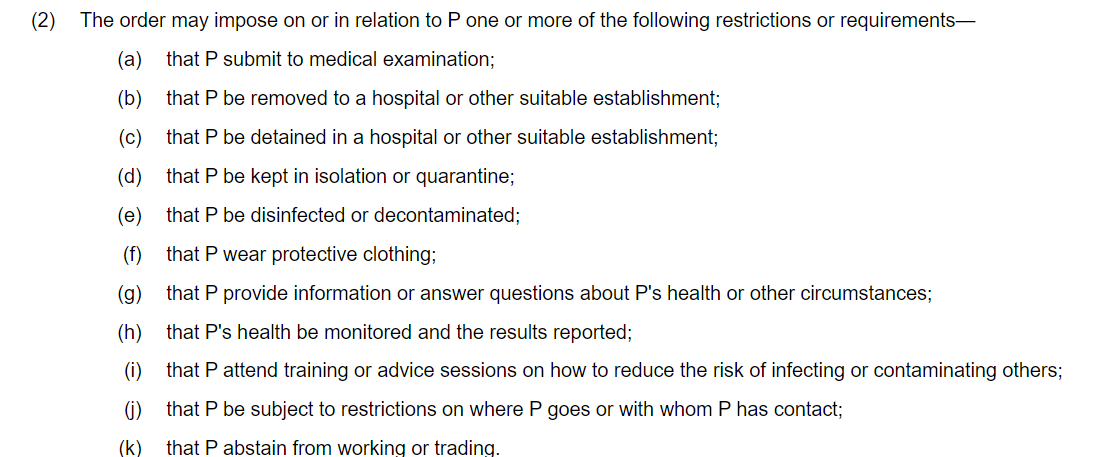



 This is in addition to the widely trailed change, that gatherings of up to 6 ppl from different households will be allowed outside. There's also now a definition "gathering": when 2 or more people are in the same place to undertake any social or other activity with each other.
This is in addition to the widely trailed change, that gatherings of up to 6 ppl from different households will be allowed outside. There's also now a definition "gathering": when 2 or more people are in the same place to undertake any social or other activity with each other. 

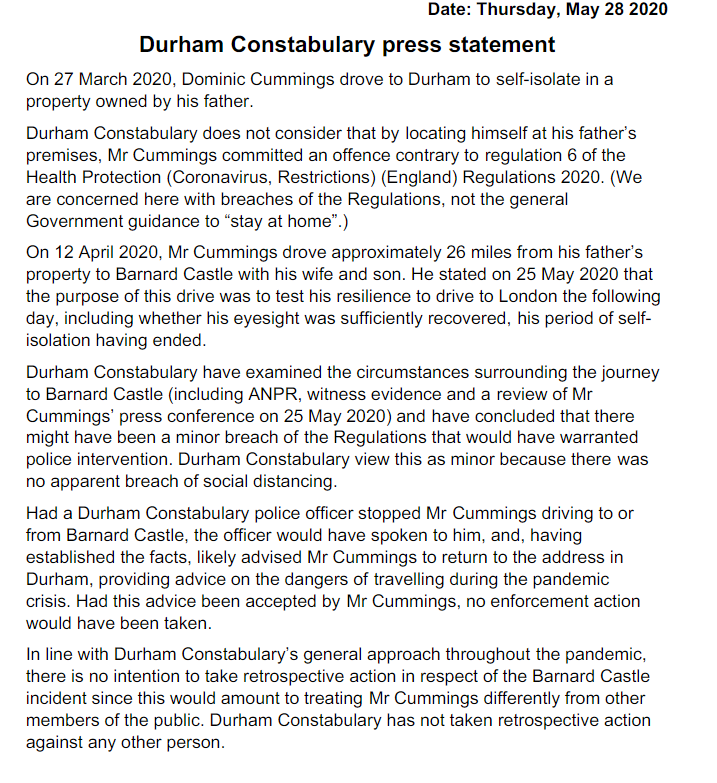
 The police say they are interested in breaches of Regulation 6 of the lockdown regulations, which are laws, and not government guidance, which are not. Good. The police have sometimes forgotten that they have no business enforcing guidance. See blog:
The police say they are interested in breaches of Regulation 6 of the lockdown regulations, which are laws, and not government guidance, which are not. Good. The police have sometimes forgotten that they have no business enforcing guidance. See blog:
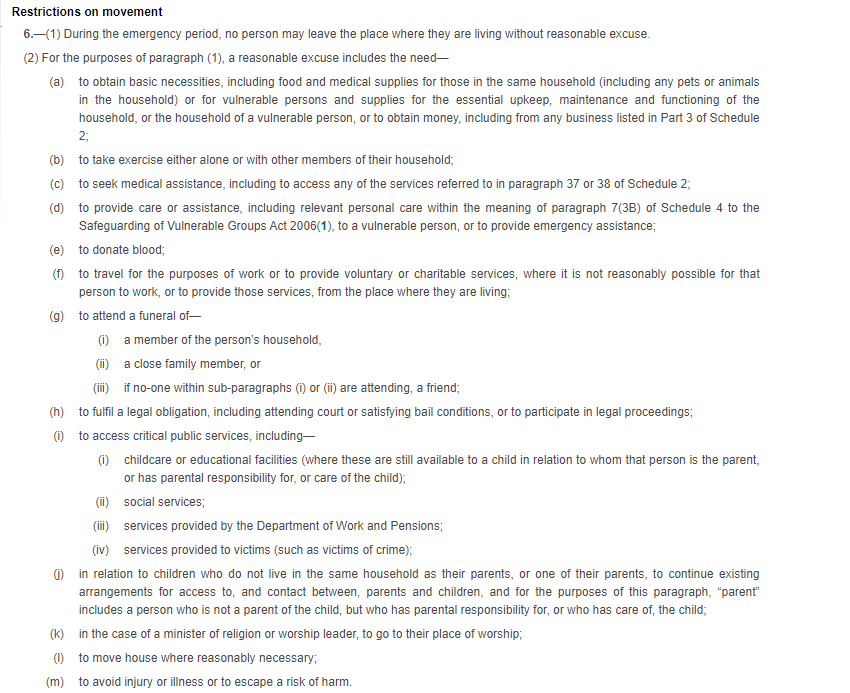

https://twitter.com/CommonsPACAC/status/1255503246220722176Gove says that the legal advice was that the government could only use the CCA in response to a "bolt from the blue" and, if they used it when they had time to pass primary legislation instead, it was open to legal challenge.


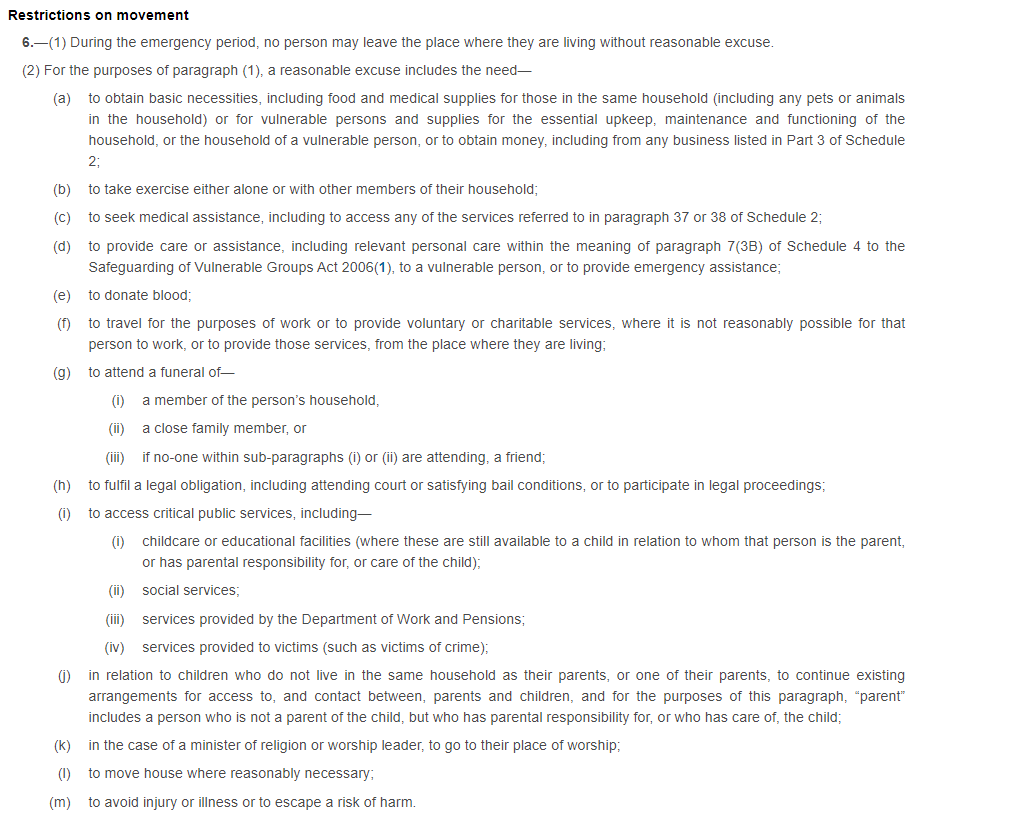

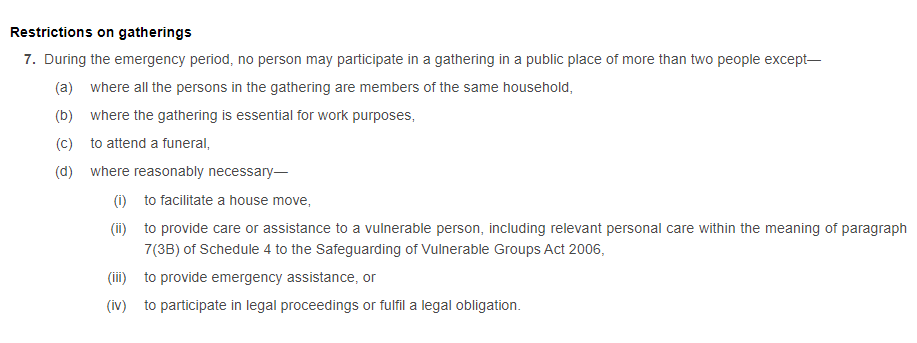










 @instituteforgov TRANSITION
@instituteforgov TRANSITION